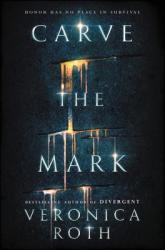
Carve the Mark, by Veronica Roth, author of the Divergent series, is told in a fantasy/sci-fi world, where the nations of Shotet and Thuvhe co-inhabit one planet, but not without a whole lot of conflict. One of our two main protaganists, Akos Kereseth, is the son of of Thuvhe's oracles, and he has a dark fate: "The third child of the family Kereseth will die in service to the family Noavek." Our other protaganist, Cyra Noavek, is the little sister of Ryzek Noavek, the cruel and sadistic ruler of the Shotet nation, and her currentgift (a kind of superpower) is to cause instant pain to anyone who touches her and be in constant pain due to this currentgift. When the Assembly (the equivalent of an intergalactic government) reveals the fates of all fated Thuvhesit citizens, Akos' family is attacked and his father is killed, and Akos and his brother Eijeh, fated to become the next Thuvhesit oracle after his mother, are kidnapped by Shotet soldiers and transported across the Divide (a field that seperates Thuvhe and Shotet). Ryzek Noavek, using his current gift, tries to obtain Eijeh's gift of prophecy by destroying Eijeh's mind, and Akos is hopelessly unable to rescue him. Meanwhile, Akos is put into the service of Cyra Noavek after Ryzek discovers that his current gift can help relieve Cyra's constant agony. In this complicated situation, Akos begins to fall in love with Cyra, although it is difficult to get past his resentment towards her and her people, and when they are both put in danger of Ryzek's crazy schemes, their relationship is truly put to
the test.
I really, really, really enjoyed this book. The characters are compelling as well as the story, which was a plot unlike anything I had ever read or seen before. The writing was good, although some humor was definitely lacking. The author did a good job of introducing many characters without taking the focus away from the main characters or making the story too confusing. The world-building was thorough, although at some points, it became a bit tangled, causing me to have to go back and reread some previously mentioned details. If I could, I would rate this book 4.5 out of 5 stars.
Here's the official summary (I think it's better than what I wrote): "In a galaxy powered by the current, everyone has a gift. "Cyra is the sister of the brutal tyrant who rules the Shotet people. Cyra's currentgift gives her pain and power--something her brother exploits, using her to torture his enemies. But Cyra is much more than just a blade in her brother's hand: she is resilient, quick on her feet, and smarter than he knows. "Akos is the son of a farmer and an oracle from the frozen nation-planet of Thuvhe. Protected by his unusual current-gift, Akos is generous in spirit, and his loyalty to his family is limitless. Once Akos and his brother are captured by enemy Shotet soldiers, Akos is desperate to get his brother out alive--no matter what the cost. "Then Akos is thrust into Cyra's world, and the enmity between their countries and families seems insurmountable. Will they help each other to survive, or will they destroy each other?
"Carve the Mark is Veronica Roth's stunning portrayal of the power of friendship--and love--in a galaxy filled with unexpected gifts."
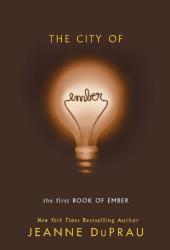
The City of Ember is a fictional book in which the author explains a dystopian society. In this society young people are given their jobs that they must do for the rest of their lives. The city is also falling apart because they are running out of supplies like food and are running out of an energy source. Their "government" system is corrupt making it impossible for change to easily happen. The main characters, Lina and Doon, are determined to find life outside of their enclosed city so they embark on a journey. On this journey they face many struggles but eventually make it out with hopes of a better life.
I would recommend this book. "The City of Ember" is a fun, easy book to read. I read it the first time because I was in battle of the books. I couldn't relate to the characters. It wasn't predictable and it was a good book.
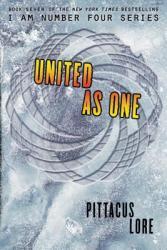
The final battle is upon the Loric. They have prepared for this their entire lives and the time has finally come. However, will all that they have done be enough to defeat Setrakus Ra. Pittacus Lore has written a thrilling conclusion to this blockbuster series. This action packed adventure is wonderful and a great read. I highly recommend this book to all middle and high school aged readers.
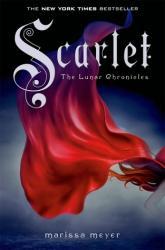
"Scarlet" is the second book of Marissa Meyer's series, "The Lunar Chronicles". We left off with new information on Cinder's true identity and her trapped in jail. With gifts from Dr. Erland Cinder must pull a daring escape from prison, using her wits and new allies to push her towards her next goal.
Meanwhile, Scarlet has been waiting weeks for information on her grandmother's disappearance. When nothing turns up, she is forced to turn to more sketchy sources.
Marissa Meyer expertly weaves the two view points to keep the series moving in the dashing book known as "Scarlet".
Reviewer Grade: 8
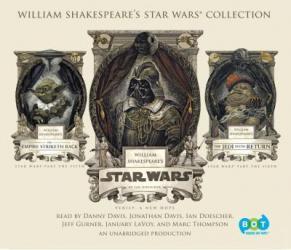
I said it for my review of Shakespeare’s Star Wars , and I’ll say it again: this combination of old verbiage and meter with popular science fiction is a match made in heaven. The follow-up to the first part of the original trilogy, Shakespeare’s The Empire Striketh Back continues to be an amusing exercise that anyone who loves Shakespeare and/or Star Wars will enjoy. Some consider Empire to be the best part of the original trilogy, and its adherence to the plot won’t disappoint. Additionally, the audiobook version continues to use music, sound effects, and voice acting to recreate an experience as close to the source material as possible.
While the audiobook did provide a robust experience of the text (especially the voice actors who recreated Han Solo and C-3PO’s speech patterns), the author’s explanation at the end made me realize there were some aspects that weren’t quite as clear as they would have been if I had just read the book normally. For instance, Yoda’s typically backward speech wasn’t as backward as I would have thought—mostly because the Shakespearean cadence sounds a little backward. Instead, Yoda spoke in haiku, which I’m sure would have been more evident if I was reading the words on the page.
As I mentioned above, Empire is the favorite of many Star Wars fans. However, I’m one of the rare few (like the author) who find Return of the Jedi to be their favorite of these first three films. Consequently, since this book held close to the original plot, it seemed to sag a little between the opening act on Hoth and the third act in Cloud City. At least the added soliloquies from ancillary characters like the AT-AT walkers, random Stormtroopers, and the dangerous creatures of the universe added in some humorous elements to the narrative that weren’t strictly canon.
A fantastic audiobook that still might require a read-through, I give Shakespeare’s The Empire Striketh Back 4.5 stars out of 5.
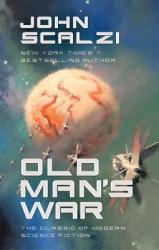
An excellent adult Sci-Fi novel in a future where to join humanity's military, the CDF, you must be 75 years old. Interesting takes on aliens, human interactions with other species, and combat. Be warned, there are sections of this book that go quite in depth about the background of certain story elements and they can seem long winded, but they all contribute to the story at large. Great read and hard to put down once you've found a little traction.
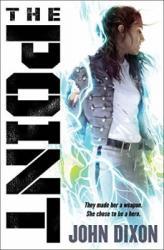
***THIS BOOK WAS RECEIVED FROM THE PUBLISHER***
With the rise in popularity of the superhero genre, it was only a matter of time before it leaked into other genres. While some genres like steampunk (like in The Esper Files ) make for an interesting twist, others like military YA sci-fi are so similar as to be just one other entry in the zeitgeist. The problem with this is that other, more famous handlings of supernatural superpowers bring much more to the table than books like The Point (which doesn’t necessarily add much to either genre on the whole).
As far as I could gather, there are only three or four different “types” of mutants in The Point: telekinetic, pyrokinesis, super strength, and “other” (like dream manipulation and energy storage, the latter of which was reasonably original). I suppose franchises like X-Men and One Piece, which give each of their unique characters unique superpowers and rarely (if ever) repeat themselves, is what ruined this book for me. This only added to the sense of the faceless military machine presented in this book, as few characters stood out to me at all.
Furthermore, I didn’t like the main character at all. Sure, most YA (and this is mature YA at that—an oxymoron, I know) start with a character who needs to undergo growth by the end of the story. However, I don’t need a main character that’s so fully flawed for so long that I end up hating her before she even learns anything. This, added with numerous questions I had that were never answered, plenty of redundant and boring sections, and the fact that I wholeheartedly agreed with the villain meant that I didn’t particularly like this book.
A book that’s likely trying to cash in on superhero and/or YA trends, I give The Point 2.0 stars out of 5.
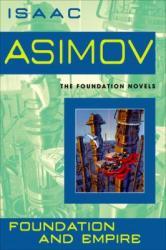
One of my qualms with the start of Isaac Asimov’s Foundation series was how different the stories were from each other. Each was set in the same universe but failed to have much of a cohesive narrative that tied them all together. While Foundation covered five different short stories, its sequel, Foundation and Empire managed to whittle this method of storytelling down to twonovellas. The result was a clear improvement in clarity and focus as each half of this book only covered a single plot each.
In Foundation and Empire, I finally was able to read a story that stuck with me in this series. Up until this point, I probably couldn’t tell you the premise of any of the short stories in Foundation, let alone the plot of the first half of this book. However, once this book transitioned over from topics that were more in line with science into ones that had a more fictional bend, I found the narrative to be much more enjoyable. It’s almost a shame that the whole book wasn’t an exploration of the universe presented in the second half.
Even if it took a book and a half for me to warm up to this series, I could honestly say that “The Mule” piqued my interest and will likely contribute to my continued reading of the Foundation series. This was probably because this particular half of the book introduced a clear antagonist to the story. It’s not that other stories in the series up until now didn’t have antagonists, it’s more that they weren’t an individual villain up until now. Now things are getting interesting!
A natural evolution of Foundation and an improvement on its predecessor, I give Foundation and Empire 3.5 stars out of 5.
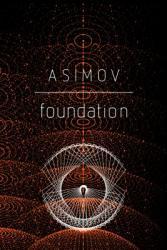
For years, people have asked whether or not I have read the penultimate science fiction series that is Isaac Asimov’s Foundation. Up until now, I could not say that I had. While I knew the series by its name, I hadn’t ever heard any comparisons or even knew what these books were about. This probably should have been my first indication of what to expect. I wasn’t expecting anything other than its notable status as a pillar of classic sci-fi. If anything, the fact each “section” of Foundation is its own short story says volumes about the origin of the genre.
Set within the same universe, Foundation follows five different groups across the timespan of a couple hundred years. Asimov explored a few different concepts and spent most of this book in world-building mode. I’ll applaud his ability to remain fairly consistent across these different stories, but the fact that there isn’t much that ties them together is the main issue I have with this book. Because they’re mostly five separate short stories, there’s not too much “action and consequence” between the different sections. This is what I would expect from a book with a standard three-act structure plot.
Additionally, I think the science fiction stories I tend to enjoy lean more on the “space opera” side than where Foundation lies. The fact that Foundation dives so deep into heady—and often controversial—topics like religion, politics, and economics is probably what lost my interest. Sure, there are some neat applications of technology that drives these topics. However, since it felt more like an academic lecture instead of an entertaining read, I glossed over a lot of the details. Maybe the other books in the series remedy this but for Foundation I just kind of felt “meh” about it.
An OK start to a highly-lauded science fiction series, I give Foundation 3.0 stars out of 5.
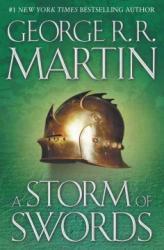
If things hadn’t already turned dark in Westeros, they certainly do in A Storm of Swords. The complicated political situation in the end of A Clash of Kings gets even more complicated as this third book dives into complex armies, weddings, wars, and so much more. George R. R. Martin’s writing may be dense, but I have never encountered a fantastical world as deeply developed as his. A Storm of Swords is jam-packed with intrigue and excitement, and it left me wanting more. I would recommend this book even if you have already seen the show; reading the books adds a whole new dimension to the characters, the plot, and the world.
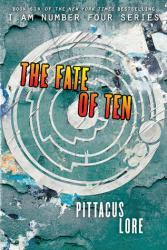
The Mogadorians have invaded. Earth is falling under Setrakus Ra's rule. However, new hope has arisen for the Loric, new Garde have arisen. Now the new Garde must choose whether they will fight with the Loric or if they will fall to the Mogadorians. The epic saga continues with another exciting adventure. Pittacus Lore continues to twist the plot in new and exciting ways that will keep you engaged. I highly recommend this page-turner to any middle or high school aged reader.
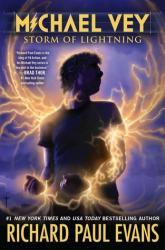
In the Michael Vey series, book four, Storm of Lightning, the resistance movement against the Elgen has been compromised. Micheal must prevent the Elgen from taking over the small island nation of Tuvalu. Hatch, the antagonist, is working to take over the world and wants to use Tuvalu as his base of operations. Since the island has no army and only a few police to defend themselves the island people are nearly helpless. Hatch plans on using his fleet of battleships to initiate a naval invasion of Tuvalu and quickly rid the island of the police force that is protecting it. Michael and his friends work on a plan to stop the naval invasion and destroy the boats before they make landfall. This book has some easily predictable moments, but is still very interesting and fun to read. My favorite part is when Michael and his friends nearly fail to accomplish one of the important parts of a plan they had made together, I would highly recommend this book and series to anyone who is into science fiction and fantasy because this book combines the two very well. However, make sure to read the first 3 books in the series first so this book is easier to follow and understand.
Reviewer Grade: 9
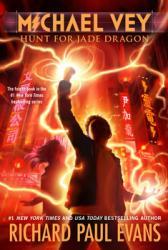
The 4th book of the Michael Vey series begins with Michael and his friends returning to a secret base. The reason they have returned is because they are preparing to go find and rescue a girl named Jade Dragon. She had been captured by the antagonist Dr. Hatch. The reason she was held captive is she is considered a genius and is able to solve problems the Elgen have had for many years. The part of this book I liked the most was when one of the plans that Michael and his friends come up with goes well. This is unexpected because most of the time his plans go very wrong. This book was not very predictable, which I enjoyed. There is no part of this book I would say I didn’t enjoy. This book is definitely worth reading and is slightly better than the 3rd book in this series. Overall this entire series is worth reading because the further into the series you go the better the books get.
Reviewer Grade: 9
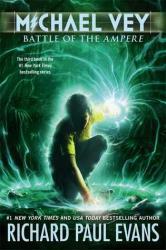
In the book, Battle of the Ampere, Michael, the protagonist, finds himself attempting to rescue his friends as he is the only one not being held captive by the Elgen. This book is good but predictable at times. Hatch, the antagonist, has captured the Elgen fleet and is beginning his quest for world domination.The part I liked the most was when Michael’s plan fails and he comes up with a new and better plan. The thing I liked the least is how predictable it is. This book is one of seven books in this series, and it was not the best in the series. However, this book is still worth reading and the entire series is definitely worth reading and very good.
Reviewer Grade:9
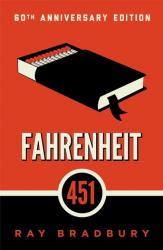
With this dystopian society reversing positions in society, firefighters burn books and light houses on fire. Montag, a veteran firefighter, soon meets a girl who changes his mind about life, books, and his job. Soon, this mystery girl disappears and Montag soon sets out on a risky adventure to solve the mystery of his lost friend. With him betraying society, reading intriguing literature, and meeting new friends, the society is out to find Montag. Will he escape into the unknown world or will he be caught with his fate unknown? This book is an adventure worth reading!
Reviewer Grade: 9th
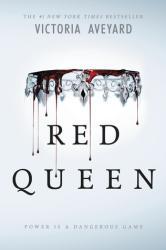
"Red Queen" is the first book in a series by Victoria Aveyard. I chose it at a friends suggestion.
The setting is a dystopian world where the color of your blood determines a lot about you. Reds are the common-folk, with nothing extraordinary about them. To make matters even worse, if a red doesn't have a job by 18, they are drafted into the ongoing war.
Silvers, however, live in the lap of luxury. They are cruel, biased, and power hungry. Plus, they have advantages over the reds. Silvers have extraordinary abilities like mind reading, controlling fire, and more. They use these powers to keep the reds in check.
Mare is a red, 17, and about to be drafted for pick-pocketing instead of getting a job. In a strange turn of events, she is saved from that cruel fate by a mysterious boy, and hired to be a servant to the royal family. Her first day on the job, however, things go array. Turns out, not all reds are powerless, and Mare is only the beginning.
To be honest, I didn't enjoy this book as much as most. The concept is fantastic, but the execution... not so much. Victoria Aveyard spends a lot of time in her subplots- a love square (not a love triangle, a love square). It might have been alright, except this is the ONLY subplot she uses. Romance is overused in this book, in my opinion. Then again, I'm not one for romance. So I would still suggest you try it, if only to step out of your reading comfort zone.
Reviewer Grade: 8
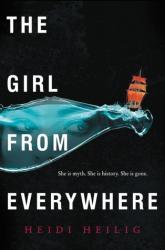
In "The Girl From Everywhere," sixteen-year-old Nix and her father lead a crew of time travelers abroad their ship, the Temptation, in a quest to find a way to save Nix's late mother. I really enjoyed this book -- I was hooked from page one. I think what really pulls you in is the complexity of the time travel -- in this story, they use maps of places during specific time periods to reach where they want to go. It's such an interesting concept that I hadn't seen before this story. I also really liked the crew -- they were all very diverse with interesting backgrounds and personalities. If I had one complaint, it's that Nix's love interest, Kashmir, is sort of your typical YA love interest -- suave, charming, sometimes abrasive, a little arrogant. Maybe it's just because this is a really common archetype in YA, but I found his character a little irritating. Nevertheless, this is an incredible story that is definitely worth checking it.
Grade: 12
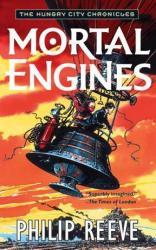
In "Mortal Engines", the first book in the Mortal Engines series by Philip Reeve, Earth is now a dystopian world where cities have become huge, mobile machines that compete for resources. London is the biggest of them all, capturing and destroying smaller cities for personal gain. A young archivist in training (and Londoner) Tom Natsworthy looks up to the leaders of London, particularly a man known as Valentine. But when a mysterious girl sneaks into the city and tries to kill Valentine, things go horribly wrong -- and both Tom and the girl are banished -- and they must find their way back.
This story had great ideas, but slightly poor execution. The overall plot started off really interesting, but as time went on, I felt like so much of it became filler content -- events seemed to just randomly happen for the sake of filling the time until we got to something important. There were also a lot of POVs to keep track of -- and it felt like there were just way too many cooks in the kitchen. In addition, the characters were really hard to root for. Tom complained often (almost to the point of whining). Hester had good moments, but was often too closed off to show a lot of emotion, which hindered character development. These characters could've been more interesting, but their flaws really kept them from developing.
What kept me reading was the world-building. The world in this book is expansive and complex, unlike any I have read about in a long time. It is utterly unique and intriguing, which made me keep reading, despite what I didn't like.
Although there is a movie adaptation of this book, I would recommend reading the book first. Because the book has more time to explain things, it allows for a better understanding of some of the confusing components of the story (in my opinion).
Grade: 12
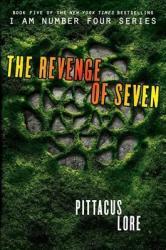
Pittacus Lore has hit another home run with The Revenge of Seven. As more secrets of the Garde’s past are revealed, the fight with the Mogadorians continues. Invasion is fast approaching and the Loric are desperate to survive. The Revenge of Seven is another action packed page turner that you won’t be able to put down. Full of plot twists, adventure, and humor, I highly recommend this book for all middle and high school readers.
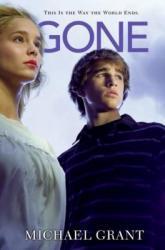
Gone is the first book of the Gone series. The basis of the story is that everyone 16 and over suddenly disappears and the kids remaining are sealed into a small town. These kids overtime start to develop superpowers and the story goes from there. I really enjoyed this book series because it made me think about what I would do in this situation. I originally found this book because of the name and it just stood out from the others. I would recommend this book for 12 and up.
Reviewer Grade: 9


